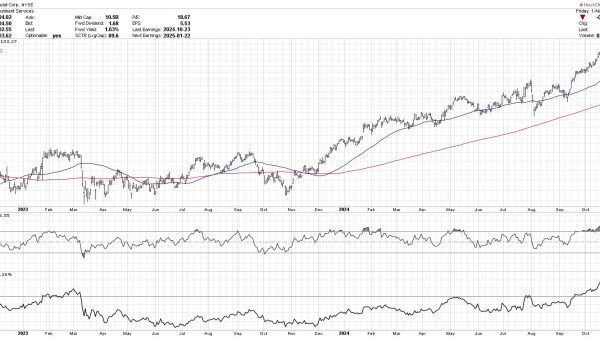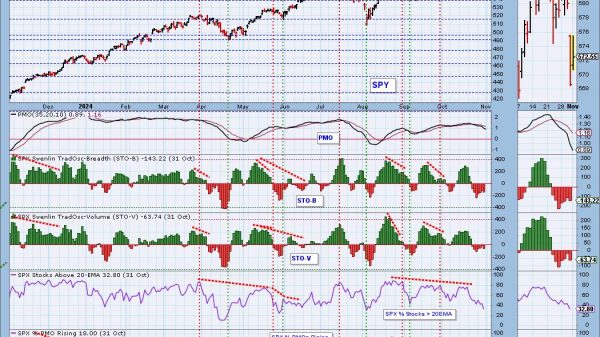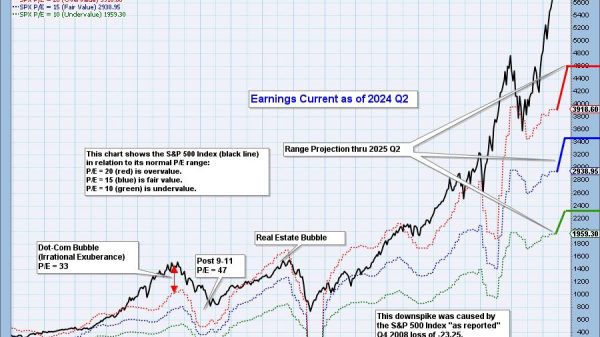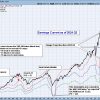 Airline stocks had a strong day, with United Airlines (UAL), American Airlines (AAL), and Delta Airlines (DAL) posting strong gains. The main reason for the rise in airline stocks was UAL’s better-than-expected earnings report and strong guidance, which comes just days after Delta missed its earnings. Having struggled for years, UAL seems to have overcome some of its headwinds, which is an encouraging sign; after reducing routes and increasing prices, UAL is seeing its efforts pay off.
Airline stocks had a strong day, with United Airlines (UAL), American Airlines (AAL), and Delta Airlines (DAL) posting strong gains. The main reason for the rise in airline stocks was UAL’s better-than-expected earnings report and strong guidance, which comes just days after Delta missed its earnings. Having struggled for years, UAL seems to have overcome some of its headwinds, which is an encouraging sign; after reducing routes and increasing prices, UAL is seeing its efforts pay off.
If you look closely at the Industrial sector in the StockCharts MarketCarpets, you’ll find these three companies represented as dark green squares.

FIGURE 1. MARKET CARPET FOR OCTOBER 16, 2024. It was a big day for airline stocks with United Airlines, American Airlines, and Delta Airlines as the top three performers.Image source: StockCharts.com. For educational purposes.
The monthly chart of UAL below shows the stock price has broken out of a triangle pattern, clearing the runway for the stock to ascend toward its pre-pandemic high.

FIGURE 2. UNITED AIRLINES STOCK CLEARED FOR TAKEOFF. The stock price has broken out of a triangle pattern and could cruise toward its pre-pandemic high.Chart source: StockChartsACP. For educational purposes.
The relative strength index (RSI) is approaching its 70 level, another encouraging sign. Let’s move to a daily chart and see if there’s a trading opportunity in UAL.

FIGURE 3. IT’S CLEAR SKIES FOR UNITED AIRLINES STOCK. With a high SCTR score, strong relative performance against the airline industry, and a move above the 10-day exponential moving average, UAL can see more upside.Chart source: StockChartsACP. For educational purposes.
UAL is outperforming the Dow Jones US Airlines Index ($DJUSAR) by 24.06% ,and its StockCharts Technical Rank (SCTR) is at an impressive 98. Looking at the chart, the path is clear for UAL to hit its pre-pandemic highs of between $92 and $97. A pullback would be healthy and, if it happens, a reversal on strong momentum would present a buying opportunity.
I’ve added a 10-period exponential moving average (EMA) for a support level to use as a stop loss. If price hits that level, accompanied by a drop in the SCTR score, I would exit the position.
United vs. American vs. Delta
Let’s look at how the three top airline stocks performed.
FIGURE 4. COMPARING THE THREE TOP AIRLINE PERFORMERS. United Airlines and Delta Airlines are close to their pre-pandemic highs. American Airlines has a long way to go.Chart source: StockChartsACP. For educational purposes.
United and Delta are trading close to their pre-pandemic highs with similar chart patterns. You could do an analysis of Delta’s stock to determine if it’s worth adding it to your portfolio. A plus point for Delta—it pays out a small dividend. American Airlines is still struggling and probably wouldn’t be a portfolio candidate unless bottom fishing is your trading style.

Disclaimer: This blog is for educational purposes only and should not be construed as financial advice. The ideas and strategies should never be used without first assessing your own personal and financial situation, or without consulting a financial professional.





























